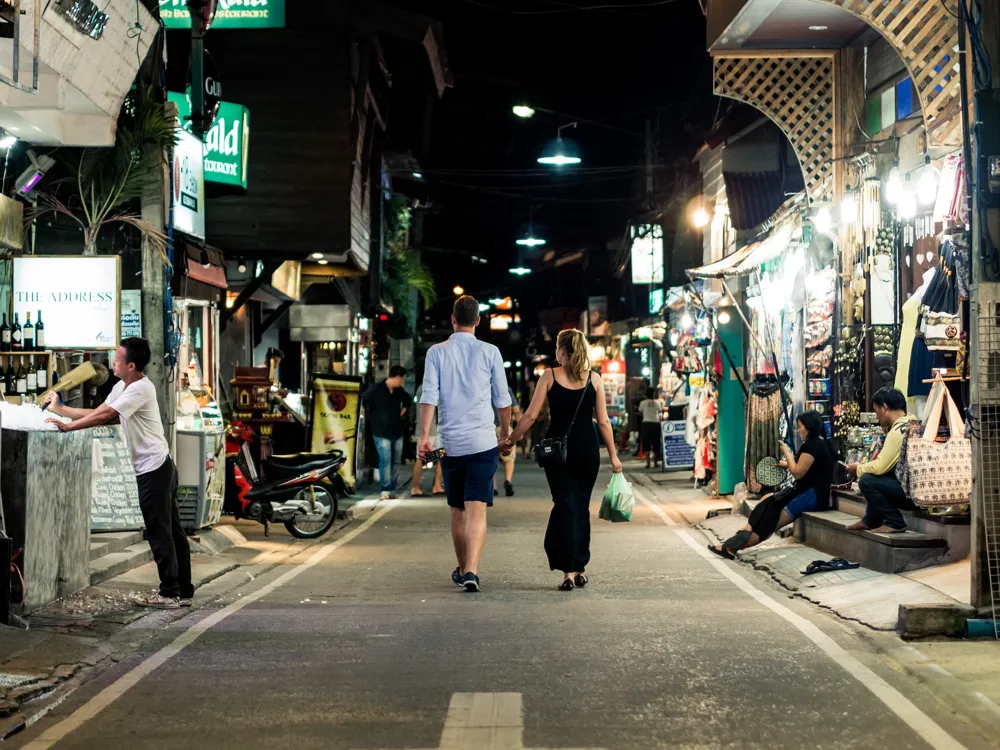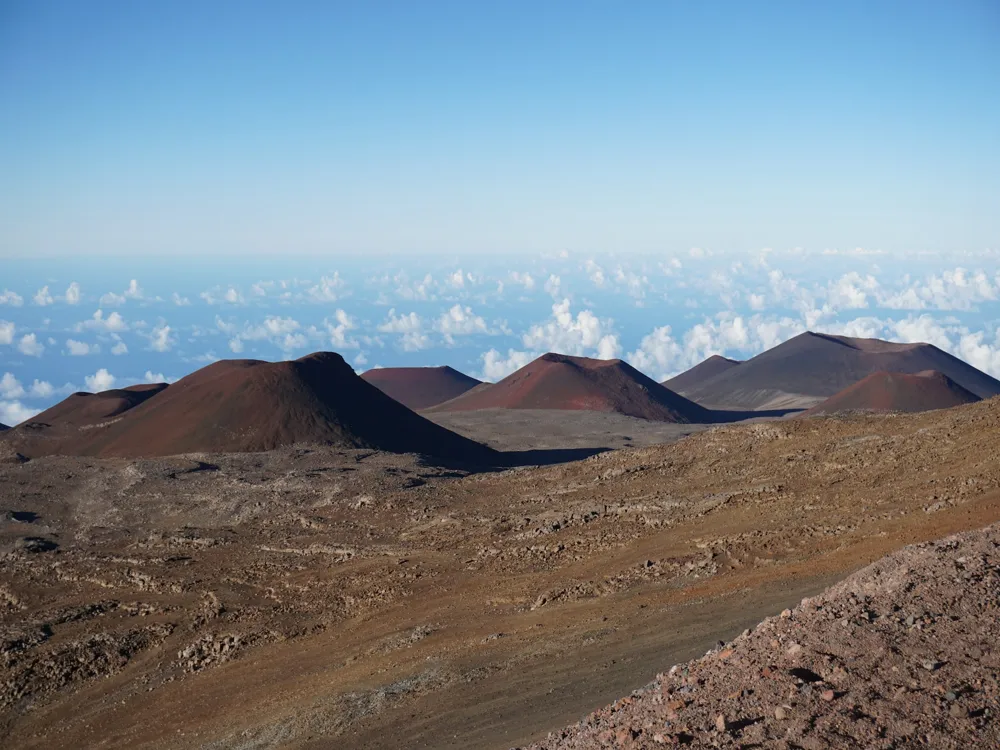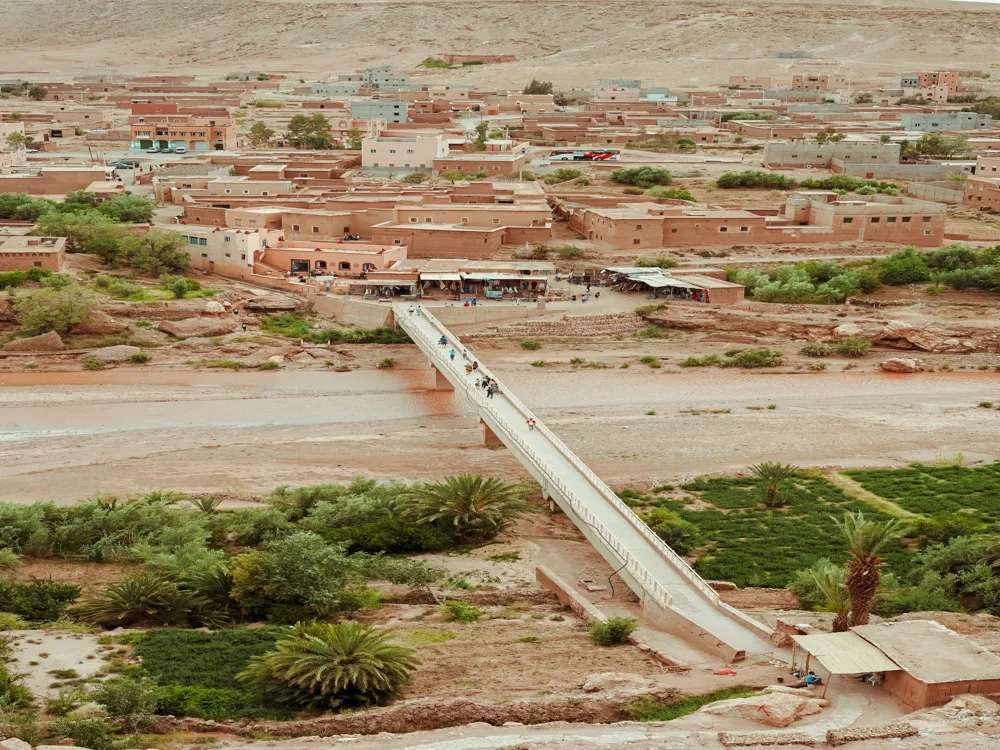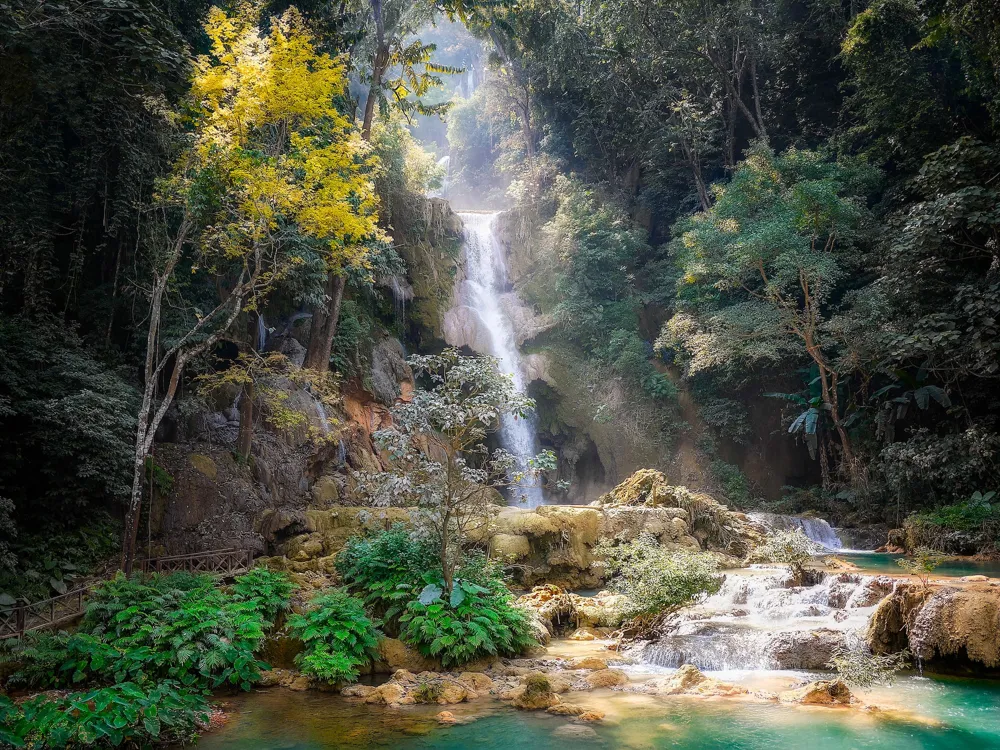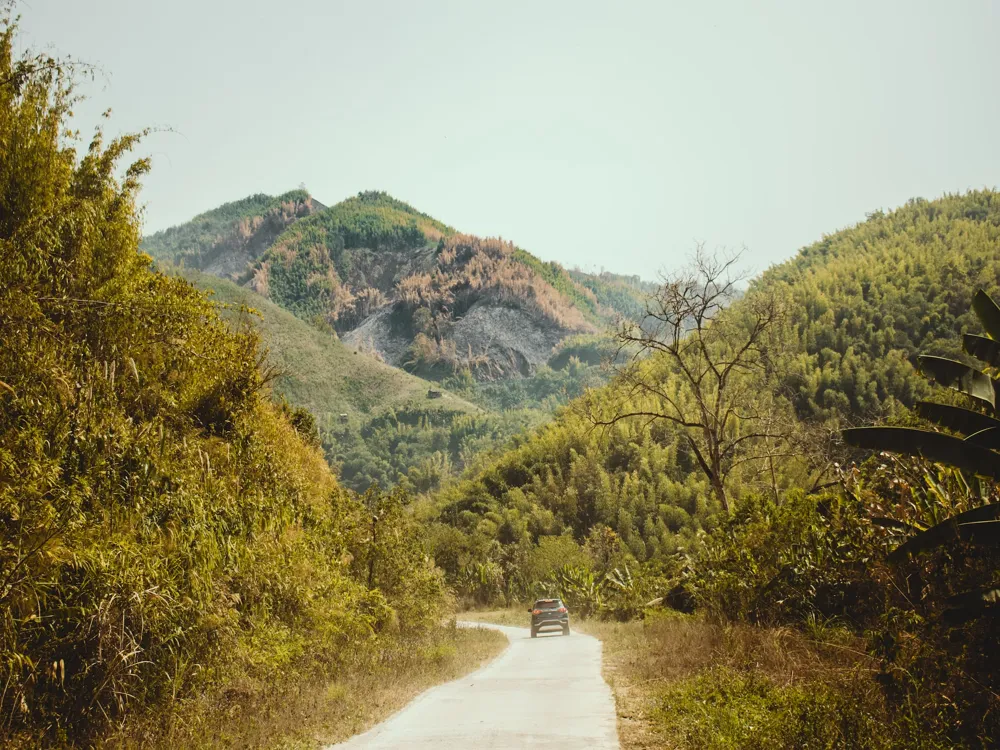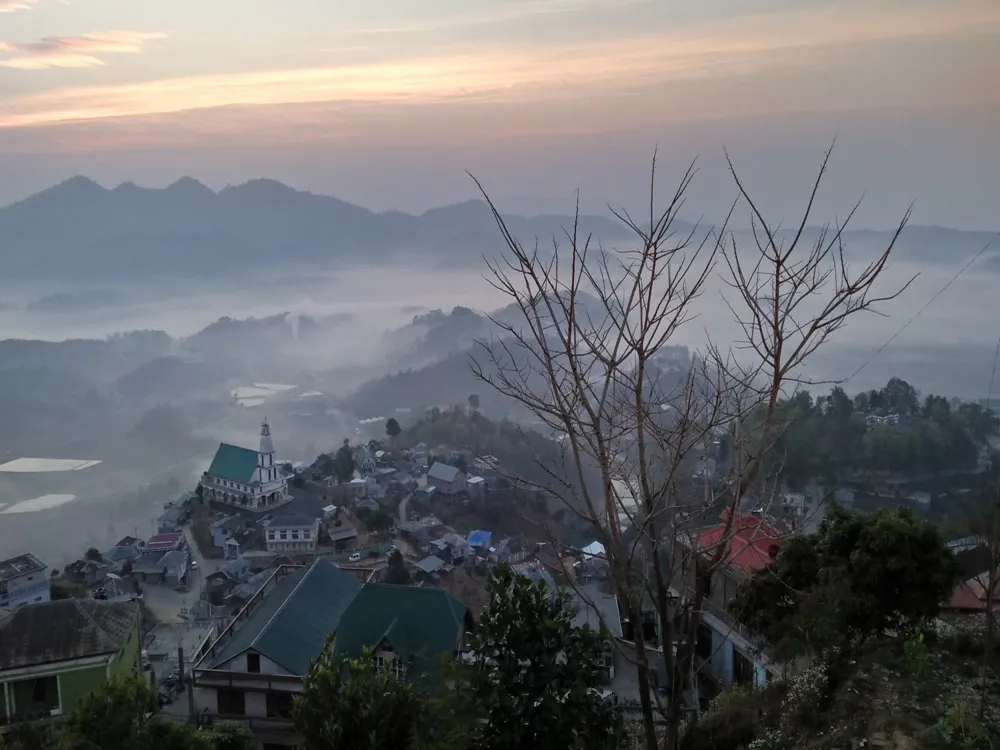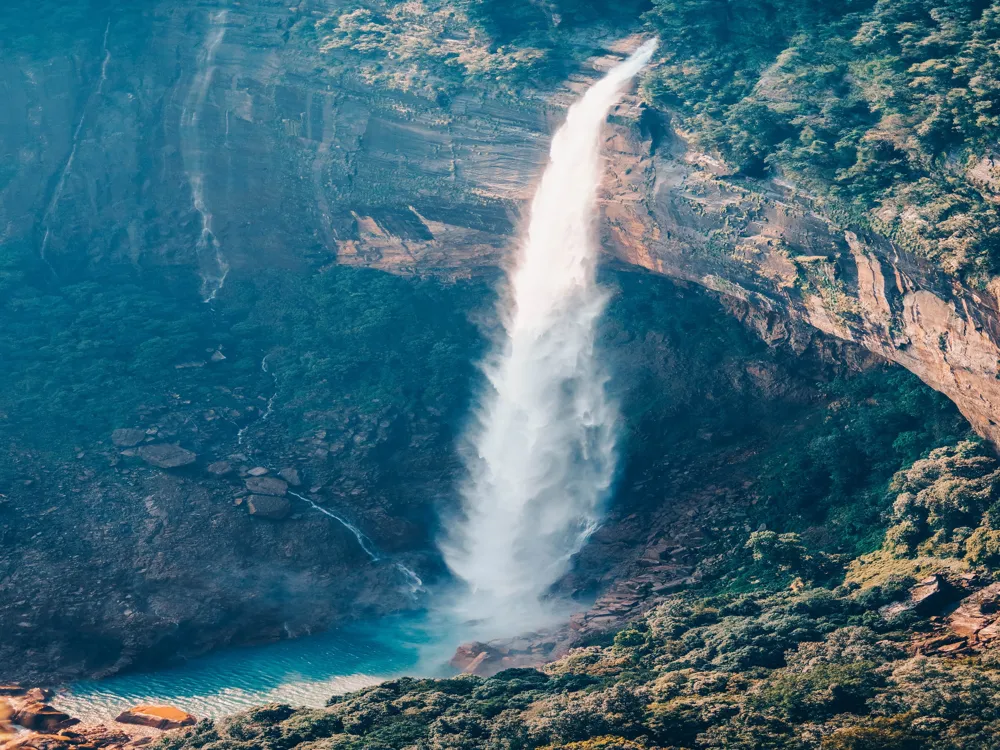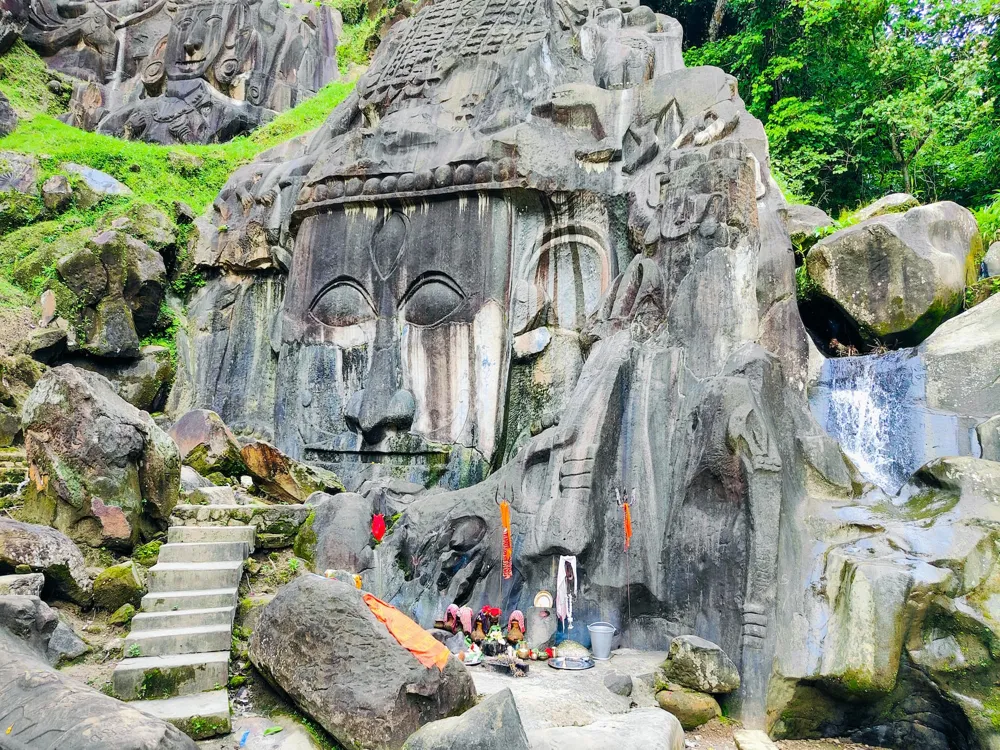Phawngpui, often hailed as the 'Blue Mountain,' stands as the highest peak in Mizoram Aizawl, Northeast India. Located in the southeastern part of the state, near the Myanmar border, it rises to an impressive elevation of 2,157 meters. Phawngpui is not just a geographical marvel but a cultural and ecological treasure. The peak is enveloped in a variety of folklore and myths, deeply rooted in the traditions of the local tribes, primarily the Mizo people. The landscape around Phawngpui is as diverse as it is breathtaking, featuring cliffs, gorges, and stunning valleys that host a rich variety of flora and fauna. The region's biodiversity is exceptional, with Phawngpui being home to several rare and endangered species. The Phawngpui National Park, encompassing the peak, serves as a protective haven for these species. The park's rich avifauna, vibrant orchids, and unique wildlife like the clouded leopard and the hoolock gibbon add to the mystique of Phawngpui. The mountain's climate is subtropical, characterized by mild summers and cold winters, contributing to the lush greenery that blankets its slopes. Phawngpui is steeped in Mizo mythology. The locals believe that the mountain is the abode of the gods and is a sacred place where spirits dwell. There are numerous legends associated with Phawngpui, with stories of mythical creatures and ancient gods. These legends are an integral part of the cultural heritage of the Mizo people and add an element of mysticism to the mountain. The biodiversity of Phawngpui is unmatched. The mountain's slopes are covered in a blanket of dense forests, comprising a mix of bamboo, rhododendrons, and orchids. The national park is a bird watcher's paradise, with a myriad of bird species, including the rare Mrs. Hume's pheasant. The park is also home to a variety of mammals, reptiles, and butterflies, making it a haven for wildlife enthusiasts. Efforts to preserve the unique ecosystem of Phawngpui have been ongoing. The establishment of the Phawngpui National Park has been crucial in these conservation efforts. The park not only protects the wildlife but also aims to preserve the natural beauty and ecological balance of the region. The 'architecture' of Phawngpui is predominantly natural, shaped over millennia by geological and ecological forces. The mountain's unique topography, with its rolling hills, deep gorges, and towering cliffs, is a natural marvel. Phawngpui's peak, offering panoramic views of the surrounding landscape, is a testament to nature's architectural prowess. The traditional Mizo huts that dot the landscape around the base of the mountain also contribute to the area's architectural identity. These structures, made primarily from bamboo and other locally sourced materials, are designed to be in harmony with the surrounding environment. The use of natural materials and traditional building techniques reflects the Mizo people's deep connection with nature. Phawngpui's geological formation is a subject of interest for many geologists and nature enthusiasts. The mountain is composed of sandstone and features unique geological formations, including cliffs and caves that have been sculpted by natural elements over time. These formations provide insight into the region's geological history and are a key feature of Phawngpui's natural architecture. The vistas from Phawngpui are spectacular, offering sweeping views of the surrounding hills, valleys, and even the distant plains of Bangladesh. The sunrise and sunset views from the peak are particularly mesmerizing, with the sky turning into a canvas of vibrant colors. The conservation of Phawngpui's natural architecture is crucial. Efforts are being made to maintain the mountain's pristine condition, with emphasis on sustainable tourism and minimization of human impact on the fragile ecosystem. The ideal time to visit Phawngpui is between November and March when the weather is pleasant and conducive for trekking and exploring the natural beauty. Trekking to Phawngpui requires a moderate level of fitness. Visitors should carry essential trekking gear, stay hydrated, and follow the guidelines provided by local authorities for a safe experience. Visitors should respect the local culture and traditions. It's important to minimize environmental impact by following the 'Leave No Trace' principles. While there are basic accommodations available near Phawngpui, visitors should plan ahead and be prepared for limited facilities. Carrying necessary supplies is advisable. Phawngpui is accessible via road from Aizawl, the capital of Mizoram. The nearest airport is Lengpui Airport, located about 80 km from Aizawl. From Aizawl, visitors can hire taxis or use public transport to reach the base of Phawngpui. The journey offers scenic views and a glimpse into the vibrant culture of Mizoram. For those preferring rail travel, the nearest railway station is in Silchar, Assam. From Silchar, one can take a taxi or bus to Aizawl and then proceed to Phawngpui. The journey, though long, is filled with beautiful landscapes and cultural experiences. Read More:Overview of Phawngpui, Aizawl, Mizoram
Historical Significance and Mythology
Flora and Fauna
Ecological Conservation Efforts
Architecture of Phawngpui
Geological Features
Natural Landscapes and Views
Conservation of Natural Architecture
Tips When Visiting Phawngpui
Best Time to Visit
Trekking and Safety Tips
Respecting Local Culture and Environment
Accommodation and Facilities
How To Reach Phawngpui
Phawngpui
Aizawl
Mizoram
NaN onwards
View aizawl Packages
Weather :
Tags : Hills & Valleys
Timings : 24 hrs
Time Required : 1 - 2 days
Entry Fee : No Entry Fee
Planning a Trip? Ask Your Question
Aizawl Travel Packages
View All Packages For Aizawl
Top Hotel Collections for Aizawl

Private Pool

Luxury Hotels

5-Star Hotels

Pet Friendly
Top Hotels Near Aizawl
Other Top Ranking Places In Aizawl
View All Places To Visit In aizawl
Faq on Aizawl
What is Phawngpui Aizawl?
Phawngpui Aizawl is a prominent mountain peak located near Aizawl, the capital city of Mizoram, India. It is often referred to as the "Blue Mountain" due to its blue-hued appearance.
How tall is Phawngpui Aizawl?
Phawngpui Aizawl stands at an elevation of approximately 2,157 meters (7,077 feet) above sea level, making it the highest peak in the state of Mizoram.
What can I see and do at Phawngpui Aizawl?
Visitors to Phawngpui Aizawl can enjoy breathtaking panoramic views of the surrounding landscape, including lush forests and valleys. Additionally, the area is rich in biodiversity, offering opportunities for trekking and wildlife spotting.
Is it possible to trek to the summit of Phawngpui Aizawl?
Yes, trekking to the summit of Phawngpui Aizawl is a popular activity for adventurers and nature enthusiasts. There are several trekking routes leading to the peak, varying in difficulty and duration.
What wildlife can be found in the vicinity of Phawngpui Aizawl?
Phawngpui Aizawl is known for its diverse range of flora and fauna. Visitors may encounter various species of birds, butterflies, and small mammals during their exploration of the area.
View aizawl Packages
Weather :
Tags : Hills & Valleys
Timings : 24 hrs
Time Required : 1 - 2 days
Entry Fee : No Entry Fee
Planning a Trip? Ask Your Question
Aizawl Travel Packages
View All Packages For Aizawl
Top Hotel Collections for Aizawl

Private Pool

Luxury Hotels

5-Star Hotels

Pet Friendly
Top Hotels Near Aizawl
Other Top Ranking Places In Aizawl
View All Places To Visit In aizawlFaq on Aizawl
What is Phawngpui Aizawl?
Phawngpui Aizawl is a prominent mountain peak located near Aizawl, the capital city of Mizoram, India. It is often referred to as the "Blue Mountain" due to its blue-hued appearance.
How tall is Phawngpui Aizawl?
Phawngpui Aizawl stands at an elevation of approximately 2,157 meters (7,077 feet) above sea level, making it the highest peak in the state of Mizoram.
What can I see and do at Phawngpui Aizawl?
Visitors to Phawngpui Aizawl can enjoy breathtaking panoramic views of the surrounding landscape, including lush forests and valleys. Additionally, the area is rich in biodiversity, offering opportunities for trekking and wildlife spotting.
Is it possible to trek to the summit of Phawngpui Aizawl?
Yes, trekking to the summit of Phawngpui Aizawl is a popular activity for adventurers and nature enthusiasts. There are several trekking routes leading to the peak, varying in difficulty and duration.
What wildlife can be found in the vicinity of Phawngpui Aizawl?
Phawngpui Aizawl is known for its diverse range of flora and fauna. Visitors may encounter various species of birds, butterflies, and small mammals during their exploration of the area.







